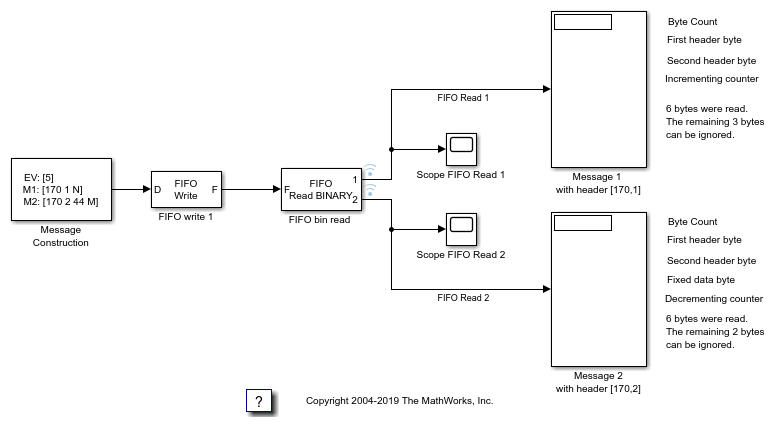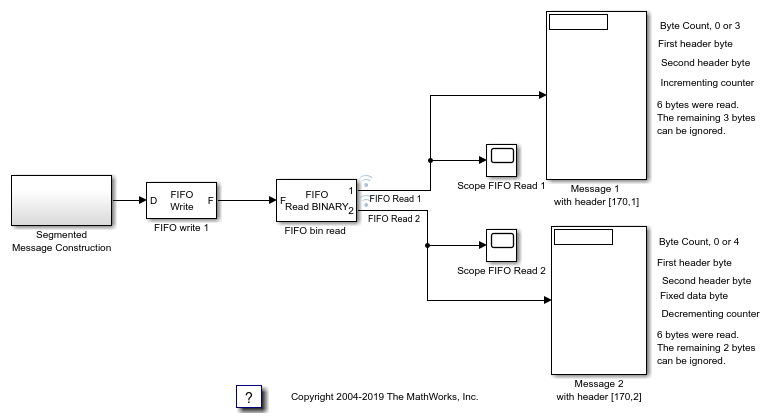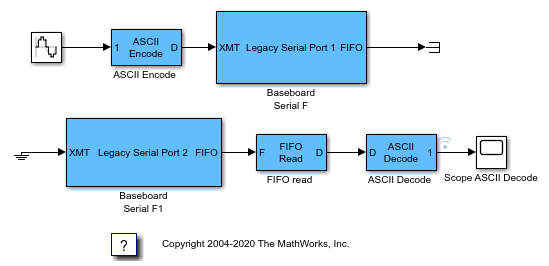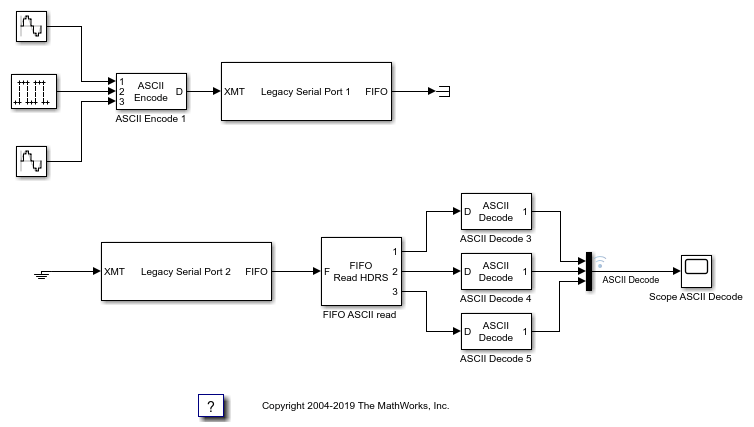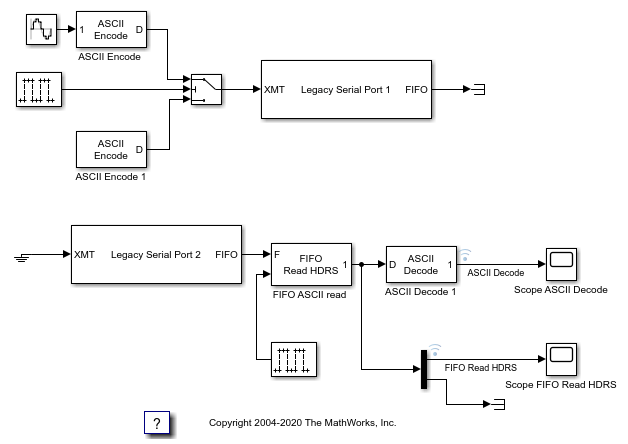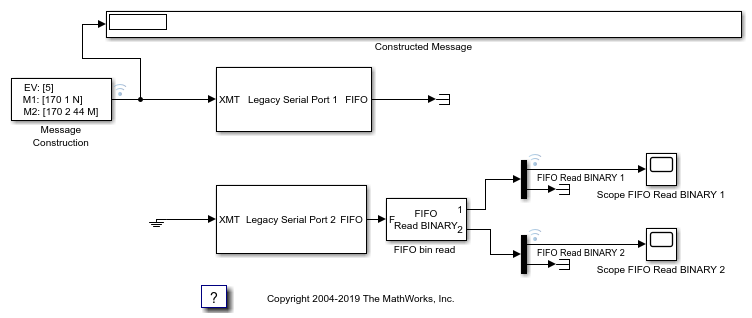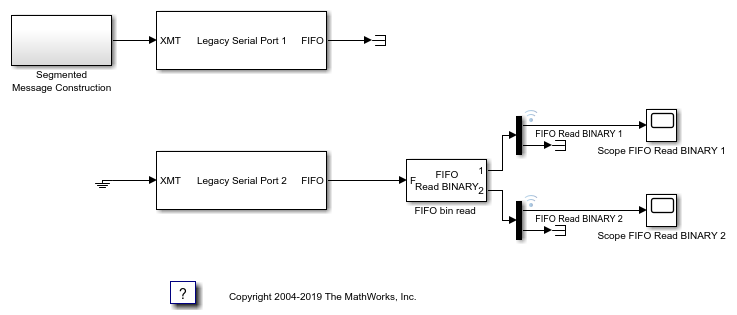ASCII Decode V2
Parse ASCII character vector into Simulink values
Libraries:
Simulink Real-Time /
RS232
Description
The ASCII Decode block parses an input vector produced by one of the following:
Serial port Receive block
Serial port FIFO Read block
ASCII Encode block
This block makes the converted values available to a real-time
application. It assumes that the
input vector was prepared using an output format specifier similar to
printf and uses an input format specifier similar to
scanf.
This block generates inline code for the Speedgoat® target computer. You cannot use it for Simulink® simulation.
For more information, see RS-232 Serial Communication and RS-232 Legacy Drivers.
Examples
Ports
Input
Output
Parameters
Extended Capabilities
Version History
Introduced in R2020b


